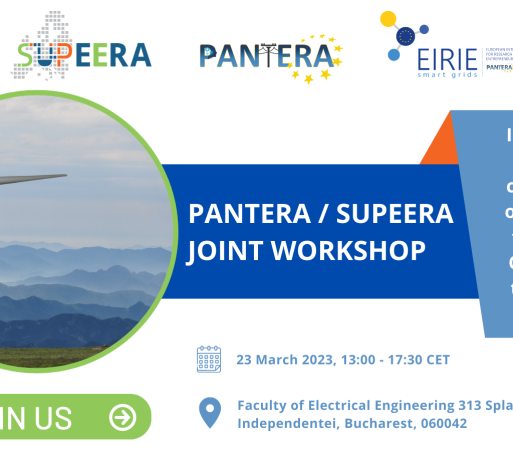BRIDGE GENERAL ASSEMBLY 2023
From 28 – 30 March 2023, the European initiative BRIDGE celebrated its annual General Assembly gathering representatives from the Bridge community, which has 93 projects in total, with 53 running, and will soon reach 150 projects.
The Bridge community has agreed to contribute to the creation and development of a use-case repository, developing a dataspace connector for data exchange between local and federated spaces, identifying what data needs to be exchanged and why, and ensuring semantic interoperability between data models.
The importance of the BRIDGE initiative
The energy landscape is changing rapidly, and the EU’s “Fit for 55” legislation package aims to address the challenges posed by climate change. The package includes updated energy directives and focuses on the role of renewables and buildings in achieving net-zero targets. In October 2022, an action plan on digitalizing the energy sector was released, with a focus on exchanging energy data, increasing investments, and greening ICT. The aim is to reduce energy consumption and bills, prevent power shortages and blackouts, and foster the use of apps for energy tracking.
The EU BRIDGE initiative promotes research and innovation in energy, bringing together stakeholders to accelerate the development of new solutions. Its goal is to support the EU’s transition to a low-carbon economy, through activities such as R&D projects, pilot demos, and policy analysis. The program focuses on renewable energy, energy storage, smart grids, and energy efficiency, and aims to facilitate knowledge and technology transfer between regions and countries. By fostering collaboration, the program can accelerate the development and deployment of new energy solutions, supporting the EU’s goal of achieving a carbon-neutral economy by 2050.
It also provides a forum for stakeholders to exchange ideas, best practices, and lessons learned, and to coordinate their efforts towards a common goal. By bringing together researchers, industry representatives, and policymakers, the program enables cross-sectoral collaboration and helps to align research and innovation efforts with policy objectives. This can lead to more effective and efficient use of resources, and can help to ensure that new energy solutions are aligned with societal needs and expectations. Overall, the BRIDGE initiative plays an important role in advancing the energy transition in the EU, by supporting research and innovation, facilitating collaboration, and promoting the uptake of new solutions.
Key outcomes from the BRIDGE General Assembly
The European Commission expects joint discussions among the five flagship calls about energy dataspaces that form the sister projects cluster (one being Data Cellar) to result in some common outcomes that can be used as an example for future research. The focus of these discussions should also be on governance. The EC will monitor calls focusing on data sharing and expects the Digital Europe Work Programme to be the first step towards the deployment of a common EU energy DS.
Another one of the key outcomes came from the audience. Some of the participants raised the need to consider regulation, market design and value, system operation and management, and data management. Additionally, there was a suggestion to cluster use-cases based on common interests and target education efforts towards citizens by connecting with like-minded initiatives, not only in the technological aspect, but especially in terms of regulation and the search of new business models.
BRIDGE Working Groups:
The Business Models Working Group has identified three outcomes. First, they plan to develop and adapt a cost-benefit analysis template that can be used to quantify the benefits of different projects and scenarios. They also plan to integrate the Bridge projects repository with the EIRIE platform, created in the context of the project PANTERA, in June 2023. Second, they aim to create a framework for measuring the social aspects of cost-benefit analysis. Finally, they recognize the lack of data available from some projects, and plan to explore regulatory sandboxes and other options to address this issue. They also plan to investigate factors that contribute to successful market adoption, as well as replication and scalability, and data valorization.
The Regulatory Working Group has identified several key topics. These include to find a balance between European harmonization and local solutions, the definition of roles and stakeholders involved in the energy transition, and the identification of barriers to flexibility. They also recognize the importance of modelling locally to extrapolate to broader contexts, and plan to collaborate with consumers on priority topics. Meanwhile, the Consumer & Citizen Engagement Working Group will focus on cross-cutting topics such as energy poverty, diversity, the digital gap, and simplification of processes. Finally, the Data Management Working Group, does not plan new actions, but aims to strengthen their links with the DG ENER to ensure effective coordination.

BRIDGE General Assembly






Trackbacks & Pingbacks
[…] As we witnessed during the General Assembly, BRIDGE is a crucial initiative for DATA CELLAR. The collaboration plays a pivotal role in the BRIDGE initiative, fostering synergies among diverse stakeholders and driving collective efforts towards a sustainable energy future. Using BRIDGE as a platform for collaboration, DATA CELLAR is bound to contribute to the analysis and development of outputs, thus supporting the consecutive decision-making process. […]
Comments are closed.